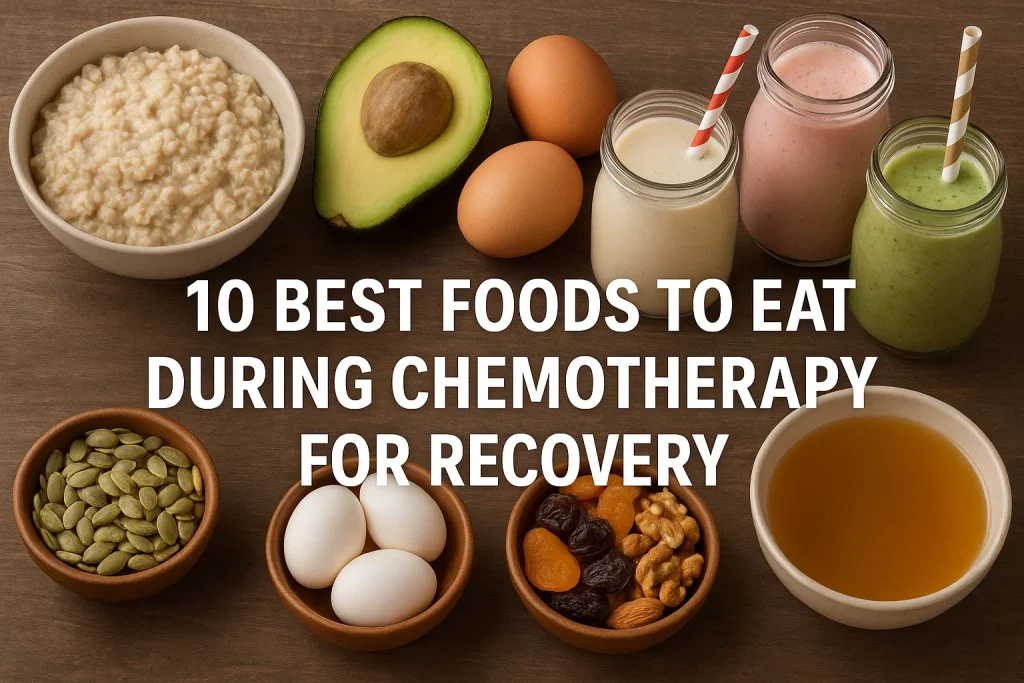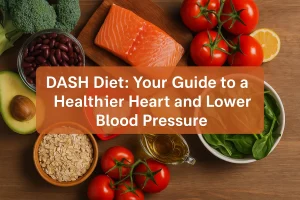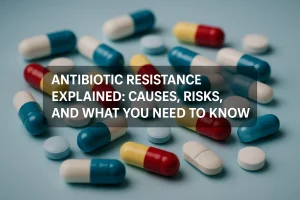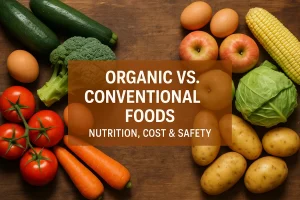
10 Best Foods to Eat During Chemotherapy to Boost Strength & Speed Recovery
Chemotherapy is physically and emotionally challenging, but nourishing foods can make a real difference. Eating well supports your strength, helps manage side effects, and boosts immunity effectively. Eating well not only helps you feel stronger but also supports your body in managing cancer treatment side effects better.
Let’s discuss in this blog the 10 best foods to eat during chemotherapy, which are gentle, nourishing, and enriched with the nutrients your body needs most right now. Whether you’re looking to boost your energy or soothe your stomach, these food choices can truly help you in quick recovery.
Why does diet matter during chemotherapy?
Chemotherapy targets the cancerous cells as well as the normal cells, which can lead to side effects like nausea, fatigue, vomiting, and weak immunity.
A good diet can help you to:
- Maintain body weight and muscle mass.
- Provide relief from side effects of chemotherapy like diarrhoea and constipation, which cause the loss of fluids and essential electrolytes from our body.
- Recover from fatigue, which makes you less active due to a loss of appetite.
- Boost immunity, reduce inflammation, and provide energy for better recovery.
What are the top 10 best foods to eat during chemotherapy?
Here are 10 of the best foods you can eat during chemotherapy.
-
Oatmeal
Oatmeal is gentle on the stomach and provides essential nutrients, making it a smart choice during chemotherapy. It is also rich in carbohydrates, protein, and antioxidants, and provides essential nutrients. Additionally, it contains healthy fats, particularly beta-glucan, that promote gut health by nourishing beneficial bacteria.
If you are facing chemo side effects like mouth sores or dry mouth, its neutral and creamy flavor is advantageous and provides you comfort.
How to prepare: It can be prepared easily; simply soak your oats in milk (or you may use soy milk if lactose intolerant) overnight and refrigerate, and add toppings with fruits and honey. You can also eat it plain if experiencing mouth sores or nausea.
-
Eggs
Eggs are one of the richest sources of protein and fats; they provide you with ~6 to 5 g of fat. Eggs help to alleviate the chemo side effects, such as fatigue, while fat provides you the energy, and protein helps you to build muscle mass, which is helpful during chemotherapy.
How to prepare: Simply boil the egg, or you may scramble it. Make sure they are thoroughly cooked with thickened yolks and hardened whites to avoid food poisoning.
-
Avocado
If your appetite is lost, avocados are packed with calories and nutrients in your diet. They are also rich in monounsaturated healthy fats that help lower bad cholesterol (LDL) and improve good cholesterol (HDL).
If you are experiencing side effects of chemo like nausea, weight loss, and dry mouth, avocado is a great choice for the best recovery.
-
Broth
Broth can be the best option during chemotherapy, especially bone broth, which is highly nutritious and protein-rich when compared to normal broth, and also helps in quick recovery.
How to make it: It is made by simmering water, vegetables, herbs, and spices for up to 2 hours, especially bone broth, which is made by adding bones or meat for ~4 to 6 hours.
Benefits: Rich in gelatin, calcium, and magnesium, it promotes bone health and muscle tone.
It also contains collagen, which contains amino acids like glycine and arginine that show anti-inflammatory effects and improve wound healing and joint health.
-
Dry fruits and nuts
Dry fruits like almonds and cashews are very rich in fat, protein, vitamins, and minerals. Almonds contain magnesium and copper and are also rich in antioxidants that help fight free radicals that damage our cells.
-
Pumpkin seeds
One of the best foods that is rich in protein, fats, antioxidants, and Vitamin E, which helps fight infection.
How to eat: You can make your meal by combining pumpkin seeds with other dried fruits and nuts, which gives them a salty and sweet texture.
-
Vegetables and other plant-based proteins
Cruciferous vegetables like kale, broccoli, cauliflower, and cabbage have an extensive nutritional profile that promotes healing. They are also rich in antioxidants that fight free radicals to kill harmful cells. Particularly, broccoli is highly rich in vitamin C, which enhances your immune system.
How to prepare: You can steam or roast these veggies and add salt as per your taste. You can also squeeze a lemon unless you have mouth sores or nausea.
-
Healthier smoothies
Suppose you are experiencing side effects like sore throats or difficulty swallowing food during chemotherapy. In that case, homemade smoothies are the best option, as you can customize them accordingly, allowing you to choose the best ingredients for your symptoms and taste.
How to prepare: Here is a simple way to make smoothies
- 1-2 cup—liquid
- 1.5-3 cups of veggies or fruit
- 1 tablespoon (15 g) of protein
- 1 tablespoon (15 g) of fat
Or you can go for a yogurt protein smoothie.
- 1 cup of chocolate or milk
- ⅕ cup Greek yogurt (dahi)
- 1 scoop of protein
- 1 tablespoon wheat germ
- ¾ fresh or frozen fruit, such as berries, cherries, or a cup of mango
- ½ fresh banana
Note: Place all things under the blender and make it smooth.
-
Fish
Salmon, mackerel, rohu, tilapia, and sardines are highly rich in lean protein and omega-3 fatty acids, vitamin D, and B12 that provide energy and improve bone health, promote brain function and muscle strength, and have anti-inflammatory properties.
How to prepare: You can steam-fry or roast and cook at an internal temperature of 63°C (145°F) to 74°C (165°F). Fish should flake easily, and enjoy your meal.
-
Coconut Water
In case of dehydration due to chemotherapy, especially due to diarrhea, nausea, or vomiting. Coconut water acts as an electrolyte drink that helps replenish lost fluids like potassium and magnesium.
How to Consume:
- You can drink chilled coconut water
- Drink it instead of plain water for better hydration.
Role of Nutrition During Chemotherapy
Chemotherapy has many side effects, like nausea, vomiting, loss of appetite, taste, etc. Here are some of the side effects, including
- Constipation and Diarrhea: Drink plenty of water, eat fibrous food (constipation), and choose foods and drinks containing sodium, potassium, and magnesium to replenish the lost salts (diarrhea).
- Loss of appetite: Eat small meals or nutritious snacks throughout the day to improve appetite.
- Loss of taste: Consider trying new foods with different spices; you can also use lemon or lime juice.
- Nausea: Antinausea foods like citrus, ginger, and peppermint oil can provide you with relief and comfort.
What foods should you avoid during cancer treatment?
Be aware of the types of food you are consuming, prepare your meals on your own, and stay away from highly processed foods as well as fried foods containing hydrogenated oil, which may lead to increased inflammation. Consider avoiding foods that can increase the risk of foodborne illness, especially for people with compromised immunity. Foods Including
- Undercooked fish or meat, or raw fish and meat.
- Unwashed fruits and vegetables
- Pasteurised dairy products
Are supplements required during chemotherapy?
Your body may need extra nutrients, depending on your side effects, like nausea and vomiting, which may cause you to lose vitamins. In that case, multivitamins can be taken, and you can add vitamin D, which is the most common deficiency that improves your immune health and bone health and reduces fatigue.
Consult with your nutritionist or oncologist before adding any vitamins and supplements to your diet.
A key Takeaway
Chemotherapy can cause side effects like dry mouth, taste changes, loss of appetite, fatigue, and mouth sores, making eating difficult. However, proper nutrition and timely care can effectively manage these effects.
Nutritious, soft, and mild foods can support your body during treatment and help relieve symptoms. Avoid raw foods (like raw fish) and fried items, and stick to fresh, hygienic meals. If you’re facing trouble chewing or swallowing, consult a specialized cancer clinic for personalized dietary guidance and better recovery.
Always listen to your body, choose gentle, nutritious foods, and seek personalized advice from a qualified nutritionist or oncology team. Small, mindful choices can help you feel stronger every day.
FAQs on Foods to Eat During Chemotherapy
What foods should I avoid during chemotherapy?
Patients should avoid undercooked or raw meats, raw fish (like sushi), unpasteurized dairy, and unwashed fruits and vegetables. Fried, highly processed, and oily foods can also cause stomach upset and increase inflammation. Always choose freshly prepared, hygienic meals.
What can I eat if I feel too nauseous during chemotherapy?
Try bland, easy-to-digest foods like oatmeal, crackers, toast, boiled potatoes, or plain rice. Sipping on ginger tea, peppermint tea, or sucking on lemon drops can help reduce nausea. Eat small, frequent meals instead of large ones.
Are smoothies good for chemotherapy patients?
Yes! Homemade smoothies are a gentle, nutritious option if you have mouth sores or trouble swallowing. Include soft fruits, veggies, yogurt, or nut butter for extra calories and protein. Avoid adding raw eggs or unpasteurized ingredients.
Can I take supplements during chemotherapy?
Some patients may need extra vitamins or minerals, especially if they struggle with eating. However, never take supplements without consulting your oncologist or a dietitian, as some may interact with treatment.
How can I maintain my weight during chemotherapy?
Eat small, high-protein, calorie-dense snacks throughout the day, like nuts, boiled eggs, cheese, smoothies, or nut butter on toast. If you lose your appetite, focus on easy-to-eat foods and stay hydrated to avoid weakness.
- Early Cancer Detection in India: Signs, Tests & Screening Guide
- Are Peptic Ulcers Dangerous? Signs, Risks & Treatment Guide







